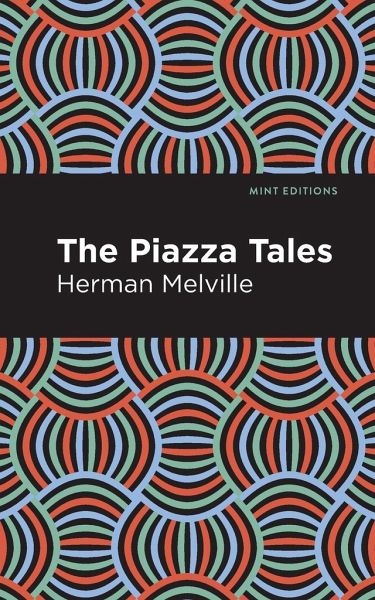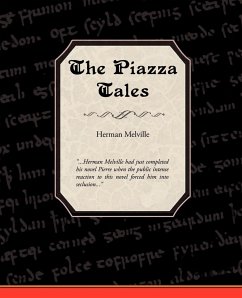
The Piazza Tales

PAYBACK Punkte
6 °P sammeln!
The Piazza Tales (1856) is a collection of short stories by American writer Herman Melville. Before publication, five of its six stories appeared in Putnam's Monthly during a period of productivity with which Melville sought to achieve popular success as a writer of literary fiction. After the failure of his novels Moby-Dick (1851) and Pierre: or, The Ambiguities (1852), Melville struggled to find a publisher who would accept his work, and contemporary reviews of The Piazza Tales were negative to lukewarm at best. When Melville's work was reappraised in the 1920s, scholars recognized these sto...
The Piazza Tales (1856) is a collection of short stories by American writer Herman Melville. Before publication, five of its six stories appeared in Putnam's Monthly during a period of productivity with which Melville sought to achieve popular success as a writer of literary fiction. After the failure of his novels Moby-Dick (1851) and Pierre: or, The Ambiguities (1852), Melville struggled to find a publisher who would accept his work, and contemporary reviews of The Piazza Tales were negative to lukewarm at best. When Melville's work was reappraised in the 1920s, scholars recognized these stories as not only well-composed, but keenly focused on the dominant ethical and sociopolitical issues of their day. In "The Piazza," a man buys an old farmhouse with a view on the nearby mountains. Despite his fortune, he spends his days longing for more, wishing his home had its own piazza so he could share the beauty of the surrounding landscape with guests. "Bartleby, the Scrivener" is a story set at an anonymous law office on Wall Street where a mysterious clerk suddenly refuses to do his work. Amused at first, the lawyer who narrates the story is eventually overcome with frustration and struggles to rid himself of the intractable Bartleby. In "Benito Cereno," a merchant ship captain sailing around the coast of Chile chances on a slave ship in distress. Hoping to assist its captain and crew, he boards their ship, unwittingly stumbling on a dangerous and volatile situation. The Piazza Tales is a collection of some of American literary icon Herman Melville's most celebrated stories. This edition of Herman Melville's The Piazza Tales is a classic of American literature reimagined for modern readers. Since our inception in 2020, Mint Editions has kept sustainability and innovation at the forefront of our mission. Each and every Mint Edition title gets a fresh, professionally typeset manuscript and a dazzling new cover, all while maintaining the integrity of the original book. With thousands of titles in our collection, we aim to spotlight diverse public domain works to help them find modern audiences. Mint Editions celebrates a breadth of literary works, curated from both canonical and overlooked classics from writers around the globe.














